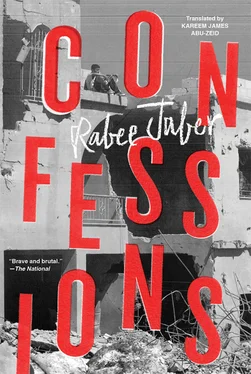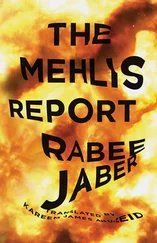Engineering was a four-year program. I took a year off from my studies after I graduated. A lot happened in the four years I was in college. I grew close to some friends, and grew apart from others. I discovered certain things, and forgot others. To cover my costs, I worked a bit in the library, in the lab, and in the telephone room. I visited places, and came back from places. So many things happen in life, things are constantly entering into you and filling up drawers in the storeroom of your memory. Did I change while I was in college? One changes all the time. And at the same time one doesn’t change at all. Are tragic events the only ones that cause change? Perhaps those moments cause us to pay closer attention to what’s important. Maybe not in the evil hour itself, but with the passing of time, when we remember them, we pay attention to those things.
A lot happened in those four years. A building fell in the heart of the university. It was during the night: we heard the explosion and went out to the balcony and discovered the clock tower was gone. The tower fell, and the telephone room was turned into an international call center. I haven’t forgotten those nights after College Hall and its clock tower were bombed, as I sat in that office lit by a yellow lamp, taking calls from Jordan, the Gulf, Europe, Australia, and America…. I even took a call from the Comoro Islands. A man called and asked for his son (room 419), and as I pressed the button I asked myself: where are the Comoro Islands?
Ilya used to come and visit me, and we’d sit and drink Nescafé and talk, or we’d go outside and walk around the campus, or go to the cafeteria, or go out and eat something in one of the nearby restaurants. He loved the hamburgers at the Universal sandwich shop. We’d sit there and talk and eat while I thought back to the very first time he took me out to buy a sandwich like that. (I was sick with measles — I told you about that — and once I’d recovered he took me out and bought me a hamburger and a bottle of Pepsi. It was the first time I’d ever tasted a burger. The mayonnaise dripped onto my fingers. And the sesame seeds from the bun fell onto my shirt — he brushed them off with his hand.)
On one of his visits he told me he’d decided to get married. On the next visit, he said he’d made up his mind: he was never getting married. He laughed as he said this, and I laughed too. On another visit he told me about his new project: he’d rented a place in Achrafieh not far from the house and was getting it ready — he was going to open a sandwich and shawarma shop.
I used to see my sisters from time to time. When I noticed one of Julia’s children looking at me with the same big eyes as the boy whose picture was hanging in the living room (a black ribbon in its corner), when I noticed his gaze and saw him turn toward me so that I’d play with him, I asked myself: How does time pass?
After graduation, I rented a house on Makhoul Street, near the university, with three friends. I worked for a while in the maintenance department of the American University Hospital, and the administration sent me on a ninety-day training trip to Johns Hopkins in America. As we were making our first rounds of the place, one of the engineers there told us: “It’s not healthy for hospital machines to break down.” On another one of our rounds, I met a doctor of Lebanese descent, and we talked. He knew I’d graduated from AUB, and he told me he came to America with his family during the Two-Year War, but that when the Two-Year War ended they didn’t do what everyone else did: they didn’t go back to Beirut, they stayed in America. He invited me to his home in Baltimore. His wife was Italian and made pizza or spaghetti every day, and he still loved Turkish food and peppered rice because he was used to it. His daughter was twenty years old and loved Japanese food—“And she’s right,” he said he and his wife agreed with their daughter on that point. The two of them always went out to Japanese restaurants, but he preferred — on his days off — to stay at home and cook beans or cabbage stew. He said he even made stuffed vegetables, and that his daughter had a particular fondness for his stuffed zucchini and grape leaves. Before I headed back to Beirut, he asked if I’d consider moving to Baltimore if there was a job opening. I said I didn’t know. “Is there an opening right now?” “Maybe,” he replied. He fell silent for a moment, then said it was possible. I don’t know if it was possible or not, but I went back to the American University Hospital and finished the year there, and when the year was over I got a fellowship and continued my studies at AUB. I’d gotten used to the university, and found myself liking it. In the apartment we rented on Makhoul Street, where we lived for three years, we used to laugh at one another because we were all engineering graduates and yet none of us knew how to fix the kitchen sink. The apartment was in an old building, there was mold on the kitchen walls, and the light bulbs blew out all the time: we changed the bulbs each week, and they’d blow out again — the wiring was old. We didn’t change the wires. At that age, you can put a lot of things off till the future.
Sometimes I’d see my mother in my dreams. I’d see my first mother, and I’d see my second one. I’d see the mother who died crying and holding my hand while I sat by her side on the bed. I’d see her face as she wiped off the icon of the Virgin Mary with some oil: she always turned around when she saw me come in with my backpack, my face all sweaty, and she’d smile and ask how my day at school was, if I’d eaten my sandwich, and what I learned in class. I remember the boy I was, I remember him skipping around the bed and taking out his books and spreading them on the carpet. He’d open the social studies book and show her the pictures. He’d say, “We learned some arithmetic today,” and then ramble on while she listened. I saw him dart off like an arrow when someone called him from the kitchen, and I saw him come back with an apple or a cookie in his hand. In the dream I saw myself in the house in Achrafieh, and sometimes I saw my college friends there with me.
I saw my other mother too: the mother whose belly I came out of and who I’ve always thought died protecting me and my siblings from the bullets that sprayed the car. I saw my siblings too. Or rather, I saw the faces of children I thought were my siblings. I saw the blond hair and face of the woman I’d seen while I was half-asleep in the Sioufi safe room. These were visions — I wasn’t actually remembering the scene in the safe room. I was dozing among the sleeping bodies, with rockets and machine guns firing outside, and she came and sparked a lighter to look for me. Was she looking for me? I thought she’d gone off with my siblings, gone somewhere far away, leaving me all alone to open the door and jump out of the car. They’d been firing and I hadn’t heard it, I was asleep. When I opened my eyes, when the warm red liquid poured out of me, I stretched out my hand, pushed the door open (did I stretch out my hand? did I pull at the handle?) and got out of the car. I can picture the men in their raincoats, I can picture the white car beneath the rain, I can picture the glass shattering. I saw my mother in the dream, I saw holes in the collar of her shirt. A warm smell drifted in and I knew it was hers. What was she saying? What was she telling me? What did she want me to do? I saw her face — I think I saw it, the features came back to me after I woke up, but time has passed since then, and now the features have become hazy — but I didn’t see my father’s face. For some reason I could never see it. I didn’t see his face, but I heard his voice in my dreams. He’s the one who picked me up and told me to pull on the knocker on the green door and then let go of it. That’s how you knock on the door. That’s how the people in the house can hear us. They’ll hear us and come and open the door for us — that’s how we enter the house. (Whose house? Our house? The house of some of our relatives? Where was it?) I heard my father’s voice without seeing his face, but I could see the features of an old house, and I think it was our own: the house I lived in until that day came and they sprayed us with bullets on the demarcation line.
Читать дальше












